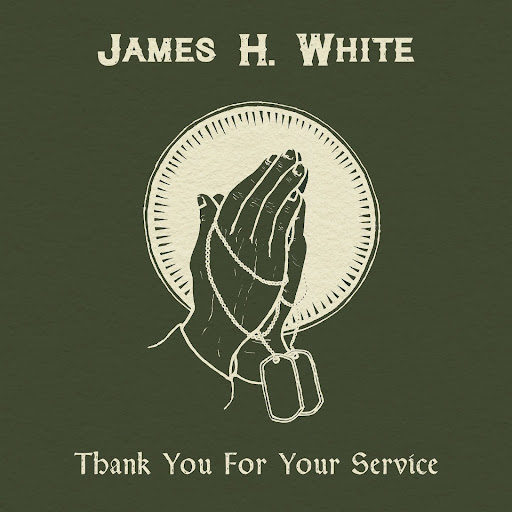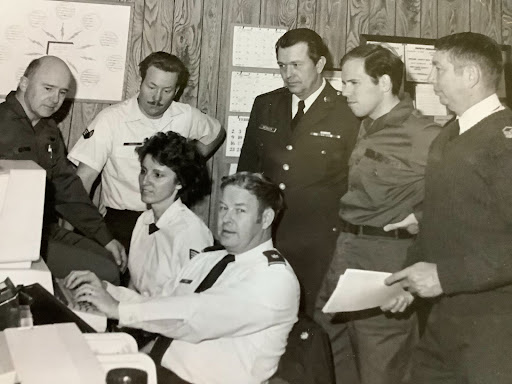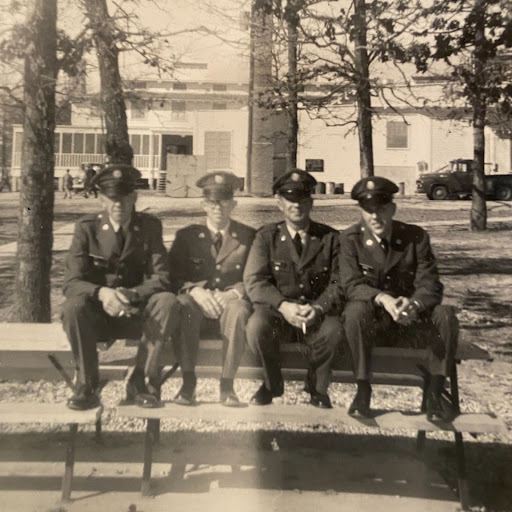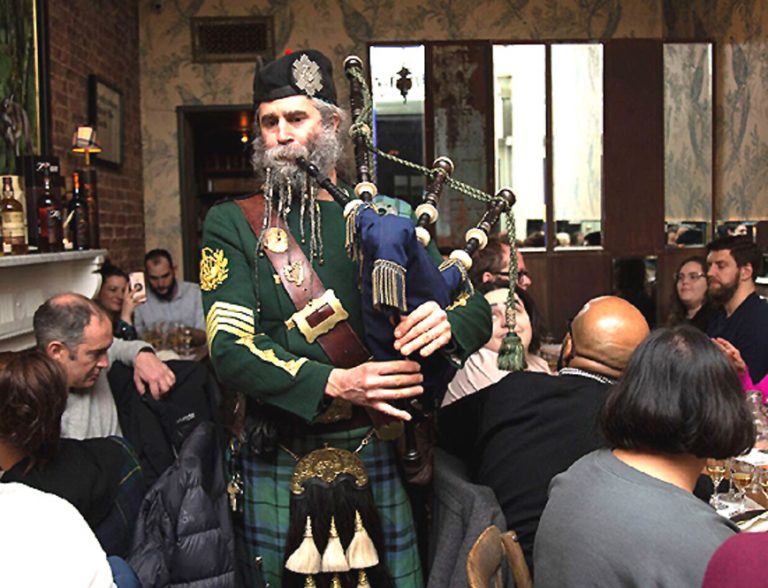James H. White is a singer-songwriter and human rights activist based in Mount Hope, NY. He recently co-wrote, hosted, and narrated his first film, “Canaries in a Cold War,” winner of seven Best Documentary Awards and two Best Narrator Awards.
America has always been about equality.
The reason is our rights—our civil liberties—are given to us all by God. It doesn’t matter whether we’re rich or poor, black or white, man or woman. All Americans are given personal liberties ordained by Heaven above. That was the Founding Fathers’ intent when they wrote our Constitution—to secure and protect our God-given freedoms.
A veteran, and close family friend, told me, “I love this country more than anything else. Nowhere else in human history has the average person been able to go from nothing to whatever we want to be if we work hard enough.” Due to the nature of his assignments, he has requested anonymity.
“On Memorial Day, I go to the cemetery to see all the roses and gifts from people who appreciate the sacrifices that all of these men and women have made,” he said. “I look back at my teammates. They were some of the smartest, bravest, healthiest, and most athletic humans on the planet. They gave everything to serve.”
Success
You are now signed up for our newsletter
Success
Check your email to complete sign up
Memorial Day has always been about gratitude and healing.
The first national commemoration of Memorial Day was held in Arlington National Cemetery on May 30, 1868. It was just after the end of the Civil War, the single bloodiest military conflict in American history. This war to end slavery took the lives of 600,000 to 800,000 soldiers in total.
But the very first Memorial Day service is reported to have been 10,000 people in Charleston, South Carolina as the war was ending in 1865. The crowd consisted mostly of freed slaves.
“If you want to talk about people who are grateful for those who have given their lives for them, you couldn’t get any better example than that,” my uncle, Jon Macomber, a former US Naval Commander, told me.
A century and a half later, their spirit lives on. That gratitude for freedom and the sacrifices made to protect it is why I wrote the song “Thank You For Your Service.” I can never repay the soldiers who died for my freedom, our freedom, since the birth of our great nation; but I hope my song will honor them.

“In many cases, Memorial Day is an abstract holiday, where we’re honoring an abstract memory and abstract event, something that hasn’t affected us all directly, personally,” Jon Macomber said. “But all you need to do is walk up to somebody who’s in uniform and ask them what it means to them, and you’ll get a little bit more immediacy to what the meaning of it all is.”
To gain a deeper understanding of the significance of Memorial Day, I called up family members and close family friends who served or whose loved ones served. These are their stories about what this solemn holiday means to them.
Commander Jon Macomber
My uncle, Commander Jon Macomber, served in the United States Navy from 1967-1988.
“My dad served in the Second World War. He was a Navy fighter pilot and a test pilot, and so there was always the possibility that he wasn’t going to come home the next day. As a child, I did not have that as an immediate vision, but I know that affected my mom.
“However, when I joined the Navy myself during the Vietnam War, that risk became immediately apparent since I lost friends in the line of duty. I was there for the evacuation of Saigon. I have very graphic reminders that there are many who did not return.
“For those who lost their lives, each of those people personified the fact that none of us expect to lose our lives at any particular time. So, that emphasizes—if you are in harm’s way in the military—how precious each and every day is. Sometimes we forget that as we go through each day.
“On Memorial Day, the most important thing to reflect on is that the best war is the one that’s avoided. At the same time, you must stand for principles. We must stand for the security of our country. It’s very difficult to figure out that balance. It’s very, very difficult personally and also politically. Life is not cheap.
“We also must remember those people who have been grievously injured with PTSD and in other ways that have altered their lives incontrovertibly, in ways that can never be changed.”

Gerry Gifford
Gerry Gifford is the widow of Senior Master Sergeant Douglas Gifford, who served in the United States Air Force from 1952-1992. Gerry’s brother, Clyde Wilkinson, also served in the United States Army from 1967-1969.
“One of the first things that I learned as a wife of a serviceman is when they get a call—and Doug would get calls at 3:00 in the morning—he had to be on the road and out.
“When we were first married, he was called to Cuba for the Cuban Missile Crisis. He had to be ready to go within 24 hours. To Iraq, the same thing. We need to remember they’re always on duty.
“During Memorial Day, I just think about how much they suffered over there in the cold weather in Korea and in the heat in Vietnam. Doug was leading the medical people back from Vietnam. They took them right off of the field hospital and flew them into California with such traumatic injuries. We just need to take time and remember. I thank you for writing your song.
“My brother Clyde also served in Vietnam. He died of cancer set by Agent Orange. When he came back to the States, everyone was against the war. The soldiers got off the planes and nobody appreciated or even understood what they had been through over there.
“The Vietnam veterans were not embraced. They were not thanked for going over. Most of them were drafted into the Army, and they had a terrible time when they came home. It’s a shame. It’s a real shame.
“For Memorial Day, I pray that people will take a few minutes and just pray and remember. When the flag raises or the national anthem plays, I hope people remember that these men and women died so that we can have freedom.
“Everything is so against our nation right now. We need to be for it. We need to be 100% for what these men and women did for us. I thank God for that every day.”
Captain Reginald Templeton
Captain Reginald Templeton, my godfather, served in the United States Marine Corps Reserve from 1969-1973.
“Memorial Day is a day when people should go and do what you were doing in your video and read the names off the markers in the cemetery. I think of the sacrifice that people like that, who weren’t even men at the time, made for this country.
“Growing up, one of my high school classmates, Michael Berkery, later became a platoon commander in the Marine Corps. They evacuated him to Japan, but he didn’t make it. There’s a Gold Star on a street sign in Alpine, New Jersey for him.
“Mike and I used to work on landscaping jobs together. He was a big rangy guy, a basketball player. He always wanted to be a Marine. Our landscaping boss was a guy named Bob Brewster. He was the best recruiter the Marines had in Alpine, New Jersey. He’d tell every young kid every exciting sea story he could think of.
“I became interested in serving when I got to law school. I realized all my classmates that really seemed to be of real stature and real character had been in the service, and your dad was one of them. I got to know your dad because he had the best shoeshine I had seen off the campus at West Point at that time. We started discussing spit-shining techniques, and we got acquainted.”

First Lieutenant Buel White II
My dad, First Lieutenant Buel White II, served in the United States Army from 1964-1966.
“When I enlisted, there was a willing acceptance of the fact that if you’re lucky enough to be born in the United States, you had an obligation to serve the country. Now, that service to the country could be a cook in the Army, or it could be on the frontlines. Of course, those who gave their lives fulfilled it in the ultimate way. We ought to remember that this is what it takes to keep democracy alive.
“Memorial Day is a day to remember and appreciate that maintaining democracy often comes with ultimate sacrifice and attendant sorrow. That’s just a part of making sure that democracy continues.
“At a memorial service years ago, I remember one young man, a Marine, who was walking on two artificial legs he lost in Vietnam. It brought home the reality that the sacrifice is not just death or life. There is also a lot of wounding, both physical and mental, such as PTSD.”
Anonymous Serviceman
A veteran close to my family has requested to remain anonymous due to the nature of his assignments.
“May 30th is my adopted mother’s birthday. I’m grateful to my parents for adopting my brother and me and all the opportunities they gave me. My adopted father served for 24 years until his heart attack and stroke. My brother served for 30 years.
“We both have this profound love for America. Memorial Day means a lot to me. It also gives me time to talk to those who went before me, my teammates.
“One woman was from a very wealthy family and could have lived a life of luxury, but she chose to serve. She was captured and tortured to death. Another, my best friend. I’ve named two of my children after this heroine and hero.
“So, I go to the cemeteries, and I talk to them. I usually spend most of the day crying, talking, and sometimes, I even laugh at the few wonderful memories.”
Watch James White’s Memorial Day music video here.







